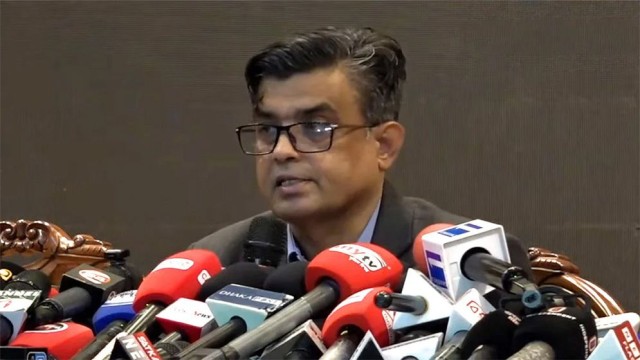Dhaka, Sep 19 (V7N) – Bangladesh's foreign debt reached a massive $103.78 billion by June 2024, soaring from $23.5 billion in 2009 when the Awami League took office. This represents an increase of over 341% in 15 years, amounting to an additional $80 billion in external loans.
The sharp rise highlights not only financial mismanagement but also the country’s increasing reliance on foreign borrowing to support its development goals. In Bangladeshi taka, this debt now stands at approximately Tk1,245,000 crore, exacerbated by the depreciation of the local currency.
This concerning data came to light following the resignation of Sheikh Hasina, who fled to India on August 5 amid a student-led mass uprising.
Experts warn that the sharp rise in foreign debt is a clear indicator of economic mismanagement. The devaluation of the taka has only worsened the situation, with the exchange rate in July 2021 sitting at Tk84.80.
The most significant rise occurred between June 2020 and June 2023, with external debt growing by 51%, from $65.27 billion to $98.93 billion, representing a $33.6 billion increase in just three years.
This accumulation of debt, fueled by inefficient fiscal policies, has raised the per capita debt to $604 by June 2024, up from $283 in 2017, placing a heavy burden on ordinary citizens.
By June 2024, the external debt-to-GDP ratio had climbed to 22.6%. Bangladesh typically secures foreign loans from institutions such as the World Bank, IMF, ADB, and international commercial banks.
Of the total $103.78 billion in foreign loans, $83.21 billion was borrowed by the public sector, with $71 billion directly acquired by the government. The private sector’s short-term foreign loans also remained substantial, reaching $20.57 billion in June 2024.
Additionally, buyers' credit, which allows businesses to borrow from abroad to finance imports, rose to $5.76 billion in June, up from $5.69 billion in March.
With the growing foreign liabilities, an increasing share of Bangladesh's revenue is being used to service its debts, leaving fewer funds available for essential services, infrastructure, and development projects.
The debt crisis has been worsened by allegations of widespread corruption and inefficiency in managing foreign loans under the Awami League. Many large development projects financed by foreign loans faced accusations of over-invoicing, delays, and misuse of funds.
Experts emphasize that Bangladesh must manage its resources more effectively to ensure sustainable economic growth and reduce its dependence on foreign borrowing.
As of mid-September, the country’s foreign exchange reserves had dropped to $20 billion, as per IMF guidelines.
END/MSS/






























Comment: